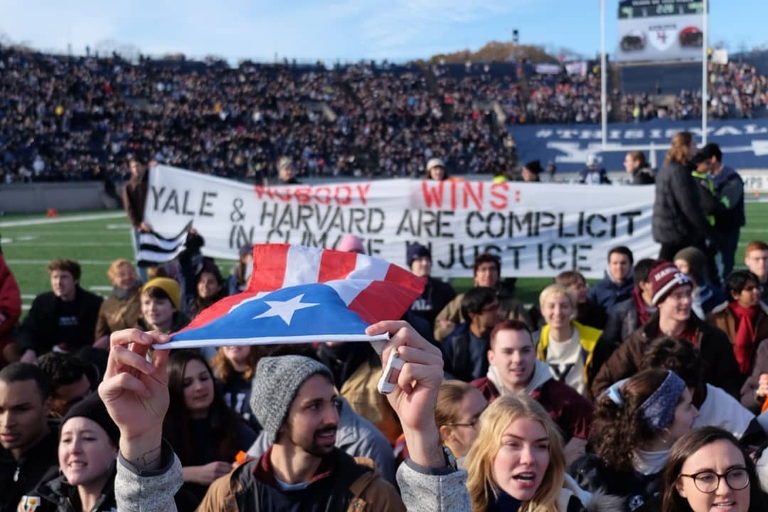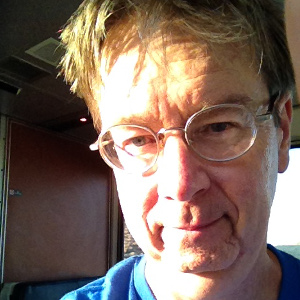The University of California’s investment strategy takes stakeholder views into account – such as student protesters at Berkeley, above, in 2014 – but its divestment program is primarily based on the belief that fossil fuel investments present a financial risk.
This is in reponse to the September 17 Los Angeles Times op-ed by University of California Chief Investment Officer and Treasurer Jagdeep Singh Bachher and Richard Sherman, chairman of the UC Board of Regents’ Investments Committee announcing the university’s divestment from all fossil fuel holdings. More on this story here, here, and here.
An Open Letter to the Regents of the University of California
Dear Regents,
I am a professor of Sociology and Environmental Studies at UC Santa Barbara. I ask that you read this letter to the end, and then share any thoughts you may have with me and your colleagues.
As you know, the faculty of the university sent you a Memorial in July, asking that you take a decision to divest the university’s General Endowment Pool of the top 200 publicly-traded fossil fuel corporations. It reads, in part: “A thousand years from now, our generation will be remembered only for what it did, or did not do, to address the climate crisis. An effective response will require, more than anything, a shared political will.”
I urge you to carefully read in full the Memorial’s arguments in favor of divestment, co-written by Professor Eric Halgren of UCSD and myself, and our rebuttal of the arguments made against it.
The Memorial – a relatively rare and difficult undertaking – was endorsed in June by a vote of more than three thousand UC faculty with 77 percent in favor, and only 23 percent opposed.
We are now in receipt of a very visible opinion piece published by Mr. Bachher and Mr. Sherman in the Los Angeles Times on September 17, that states:
We are investors and fiduciaries for what is widely considered the best public research university in the world. That makes us fiscally conservative by nature and by policy – “Risk rules” is one of the 10 pillars of what we call the UC Investments Way….
We believe hanging on to fossil fuel assets is a financial risk. That’s why we will have made our $13.4-billion endowment “fossil free” as of the end of this month, and why our $70-billion pension will soon be that way as well.
This risk-averse reasoning might not jibe with what you will read in a newspaper headline or scroll through in a news feed on your phone. Some might see our action as born of political pressure, or as green movement idealism or perhaps political correctness run amok….
While our rationale may not be the moral imperative that many activists embrace, our investment decision-making process leads us to the same result. We’re in the business of helping to ensure the financial viability of a great university whose stakeholders frequently come at an issue – even one as terrifyingly consequential as climate change – from different perspectives.
The reason we sold some $150 million in fossil fuel assets from our endowment was the reason we sell other assets: They posed a long-term risk to generating strong returns for UC’s diversified portfolios.
We have been looking years, decades and centuries ahead as we place our bets that clean energy will fuel the world’s future. That means we believe there is money to be made. We have chosen to invest for a better planet, and reap the financial rewards for UC, rather than simply divest for a headline.My faculty colleagues, however, and the vast majority of the students, staff, and faculty at the University of California’s ten campuses, do not feel that divestment should be primarily a financial decision driven by a fiduciary duty (let us recall that the Latin word “fiducia” derives from the root meaning of “to trust in”).
We are glad that you have finally accepted our argument that the evidence shows that these stocks have not outperformed the rest of the endowment in recent years, and that they represent a bad investment from now on into the future.
In fact, perhaps unwittingly, your financial officers have made a case that is likely to unleash a cascade of divestment announcements by other institutions, who can now point to the analysis of the University of California top investment officers to immediately shed their fossil fuel holdings for fear of losing more money. And we hope they will.
The UC’s divestment statement does not address what we have asked you to do. What we would like to see is a properly agendized discussion of the Memorial at the next Regents meeting, in November, followed by a public vote where each Regent approves or rejects it. In fact, two votes would be even better: 1) do you support divestment for financial reasons? 2) do you support divestment for financial and moral reasons?
We also request an ample period of public comment before the vote so that the considered views of the vast majority of UC faculty, staff, and students in favor of divestment can be brought to you. In 1986 the Regents voted to divest all $3.1 billion of its South African-based investments because South African apartheid was deemed morally unacceptable. In a historic moment that we are all rightly proud of the Regents of the day condemned apartheid-related investments after a three-hour discussion. Fossil fuel extraction already has exposed communities world-wide to illness and death, and we ask you to take the same clear and principled stand once again.
In light of the stakes – moral and financial – we urge you to formally consider a compelling issue on which humanity is now being called to take a clear position. We are certain that a strong statement from the Regents endorsing the Memorial’s arguments in explicitly committing the UC to divest its fossil-fuel holdings will be heard around the world. It will make a small but very definite contribution to our collective efforts to confront the climate crisis.
As we have seen in the September 20-27 global climate strikes, UC students and youth around the world are already exercising their own moral leadership, and they are asking for intergenerational allies across the UC right up to the very highest level of decision-makers.
The Memorial gives you the opportunity to place the University of California squarely within the growing ranks of public institutions that are acting in a manner that helps ensure a future for all our students. It is an opportunity to realize the highest purposes of the university.
If one of you moves to put the Memorial on the November agenda, the process will move forward with the leadership and transparency this great moment requires.
We hope you will make us proud of you in November by adding the moral authority of the University of California to the millions of people from all walks of life who understand what is at stake for the generations that are coming after us.
With gratitude, and in expectation of your good actions,
John Foran
Distinguished Professor of Sociology and Environmental Studies
University of California, Santa Barbara






